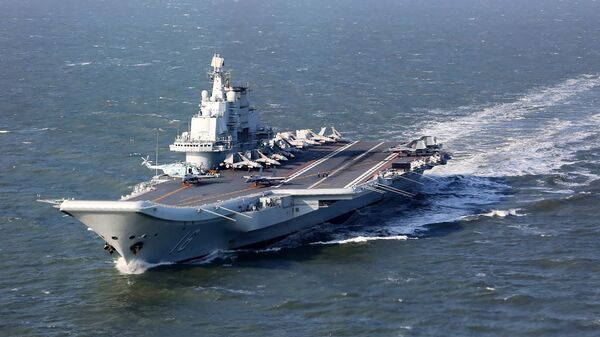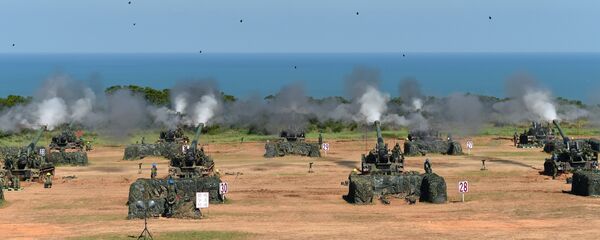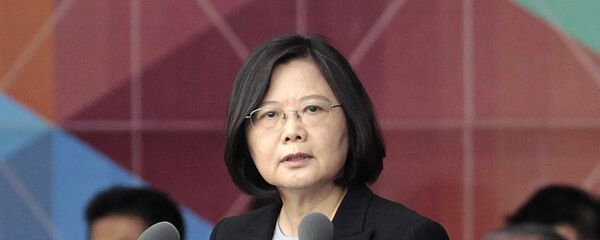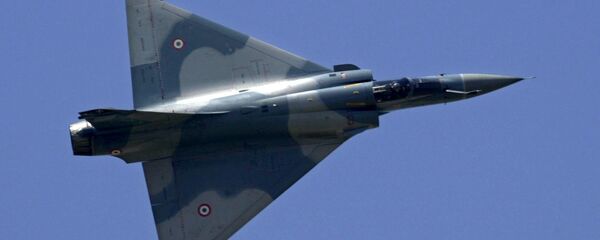The Taiwanese Defense Ministry announced that the Liaoning, an unfinished Soviet-built aircraft carrier that was purchased, refitted, and launched by the People's Liberation Army-Navy, entered the Taiwan Strait from the southwest in the wee hours of Tuesday morning.
The Liaoning and its accompaniment entered Taiwan's Air Defense Identification Zone, but stayed in Chinese waters. The group passed through the Strait without incident. "While the group was passing through the Taiwan Strait there were no abnormal activities, and people can rest easy," the island's Defense Ministry wrote.
This is not the first time that the Liaoning has passed through the Taiwan Strait, which has great commercial significance to China in addition to its sensitivity as the naval border between the two Chinas. Beijing still considers Taiwan — for all intents and purposes an independent country — to be a wayward province with an illegitimate government.
When asked if the incident was meant as a provocation, the mainland's Taiwan Affairs Office replied that Beijing was using its "greatest efforts and utmost good will" to peacefully reunify the Chinas. "However, it will never tolerate 'Taiwan independence' or allow such forces to split China," added spokesman Ma Xiaoguang in a statement.
After several years of quiet along the Strait, hostilities between China and Taiwan flared after the 2016 election victory of President Tsai Ing-wen and her Democratic Progressive Party. Unlike her predecessors, Tsai has been unwilling to publicly endorse the 1992 Consensus, a cross-strait agreement affirming that there is only one China — although both Beijing and Taipei hold that theirs is the legitimate government.
Chinese military posturing has become far more prevalent since 2016, as Beijing suspects Tsai may harbor intentions to declare Taiwan a sovereign nation — a red line in cross-strait relations. Tsai has insisted that her primary goal is to preserve peace.
Tsai has responded to the pressure by vowing to increase defense spending by about $2 billion a year. Although relations were stable before Tsai's presidency, China has drastically increased military spending every year and now enjoys a significant edge over Taipei in that regard. In March 2017, Beijing announced that defense spending would be increased 7 percent over 2017, an increase of $11.1 billion.
Ma mentioned that Tsai's refusal to affirm the 1992 Consensus was damaging relations, as was her intent to bolster Taiwanese military strength. "Whether the Taiwan authorities will follow the good trend and return to the 1992 Consensus or do the opposite depends on its own decisions," he said.
"Based on the common political basis of adhering to the 1992 Consensus and opposing 'Taiwan independence,' we are willing to enhance dialogue and cooperation with all parties, organizations and personages in Taiwan to jointly maintain and promote the interests of people on both sides of the Strait and safeguard the peaceful development of cross-Strait ties," he said.





